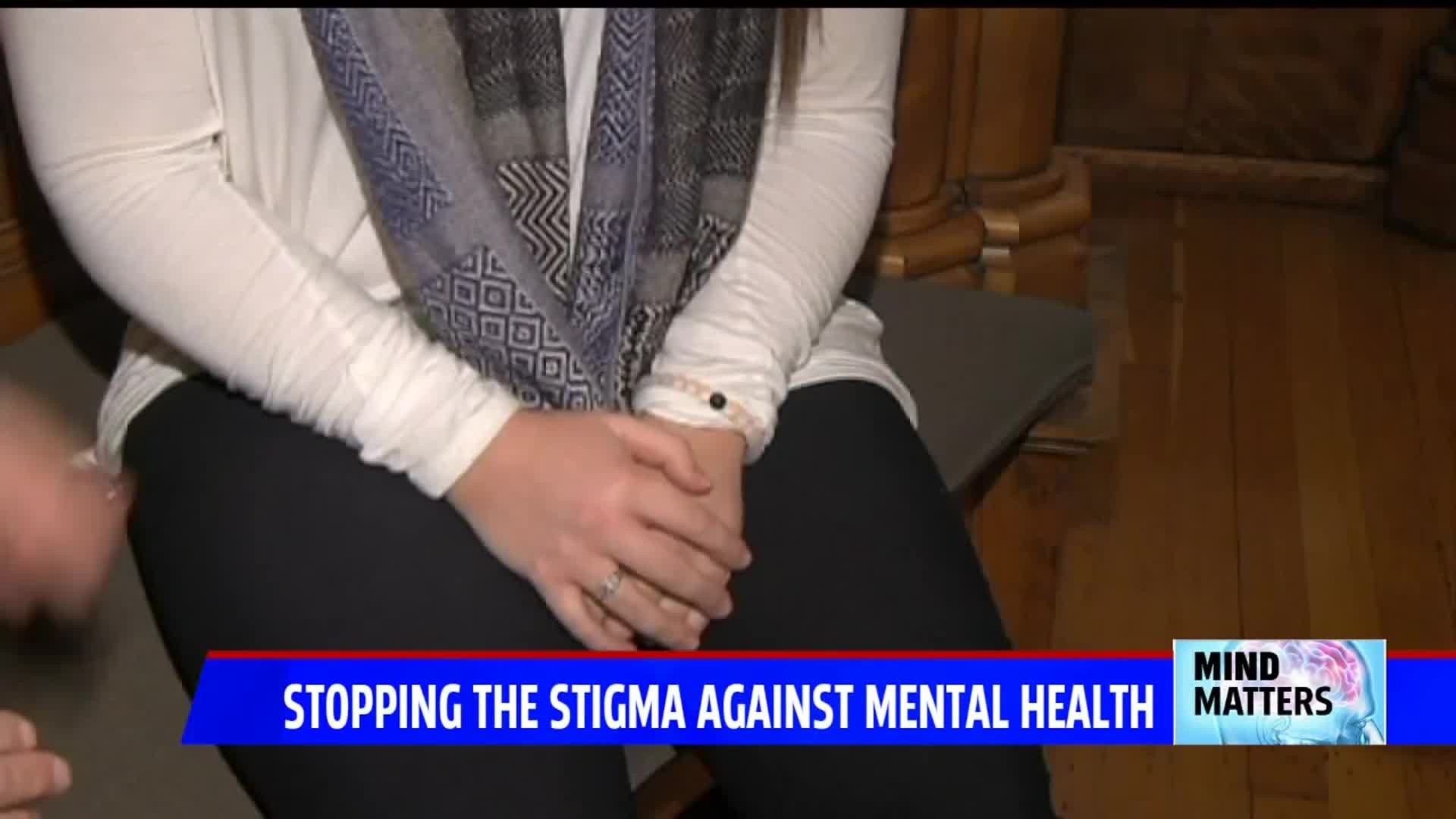When is comes to stopping the stigma surrounding mental health and substance abuse, experts in central Pennsylvania say integration and education are key.
"I don't think stigma is as bad as maybe it was 10 years ago, but I still think it's there," says Sue Walther, executive director of the Mental Health Association in Pennsylvania.
Nearly 60 percent of adults living with a mental illness do not seek treatment in a given year, according to the National Alliance on Mental Illness. When they do, there's an average delay of eight to ten years between the onset of symptoms and the first treatment.
"People are always quick to judge when something upsets them," says Lynn Keltz, "and sometimes the behaviors exhibited by people with mental illness are upsetting."
Keltz is the executive director of the Pennsylvania Mental Health Consumers' Association. She and Walther spend their days working to open minds about mental health. Both women are strong believers that we need to remove the divider between mental health and physical health.
"When they go to a doctor, that should just be part of it," says Keltz. "If we all were screened from the time we were children, to the time we died, it would be normal. There'd be less stigma."
Susan Hein agrees.
"Having a mental illness, a disorder of the brain, is to me like having a different kind of chronic physical disorder," Hein says.
She's the executive director of the National Alliance on Mental Illness York County, and the mother of a young woman who lives with bipolar disorder and panic disorder.
"The same way I wouldn't be embarrassed to speak to someone about a cardiac issue, a stomach issue, or diabetes," Hein says, "I don't want my daughter to ever feel that speaking about a mental illness diagnosis is something to be embarrassed or ashamed of."
Avoiding labels and categorization is how Diana Fullem has helped others recover. She's the founder and CEO of Recovery Insight, a peer support service that works with people who are recovering from mental health and substance abuse issues.
Fullem explains staff at Recovery Insight don't come in as medical professionals.
"We just want to meet the person, we don't want to meet the illness."
Fullem lost her son to a drug overdose in 2002. He was 24 years old, and had battled bipolar disorder and schizoaffective disorder for more than a decade. Diana says she and her family worked for years to turn their grief into something good.
"Anybody can attain whatever they want to in life. They have that choice."
Diana lives with her own diagnoses: major depressive disorder and anxiety. To her, it's the faces that mask the diagnoses that's more important, and it's what gives others hope of recovery.
"The more people that you see that have a label of a diagnosis is just a human being, and they have likes and joys and happiness and families just like everybody else."
To make sure symptoms don't stand in the way of that happiness, experts say it doesn't matter where you seek help, it only matters that you do.
"When it starts interfering with daily life," explains Susan Hein, "maybe being able to have a relationship, or interfering with having a job, that's where you've got to say to yourself this might be a bit bigger than what I'm able to control."
Seeking help is not a sign of weakness. On the contrary, it shows enormous strength.
"You would never ask someone with diabetes to just hang in there and it'll get pass. It is a disease. You wouldn't ask that of anyone else." Sue Walther says, "there's no reason for them to just hang in there tough because it may not go away."
"Really what life does to all of us is sometimes we have to go down a different road," says Hein. "It's not that we can't get to our destination, we just have to find a different way of getting there."
"That's recovery," says Diana Fullem. "That's basically what it is. Living your life to the fullest and feeling good about what you're doing."
The experts all mentioned the connection that's often made between violence and mental illness. saying it's been blown far out of proportion and is fueling the stigma. In fact, people with mental illness are much more likely to be victimized. Studies show only about four percent of violent acts are linked to mentally ill perpetrators.
The Pennsylvania Mental Health Consumers' Association offers has a navigator program that can link people with the support services they need, taking the guesswork out of searching for the right place to help. You can find information about that on the association's website.
The Consumers' Association also works with Mental Health Association of Pennsylvania, which works to remove stigma surrounding mental health.
The National Alliance on Mental Illness York County and Recovery Insight each offer peer support services.

